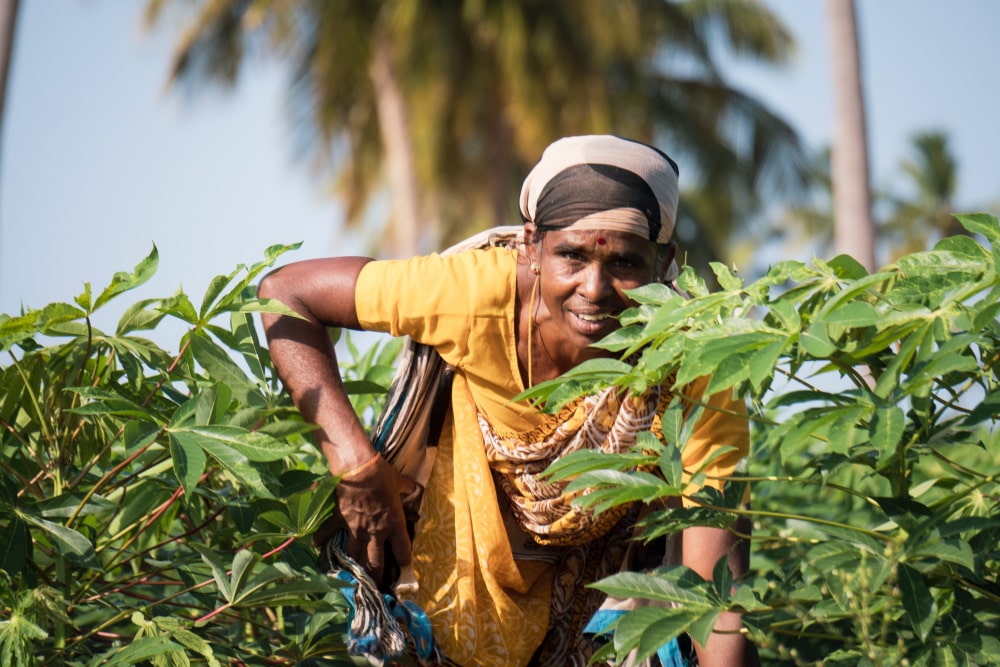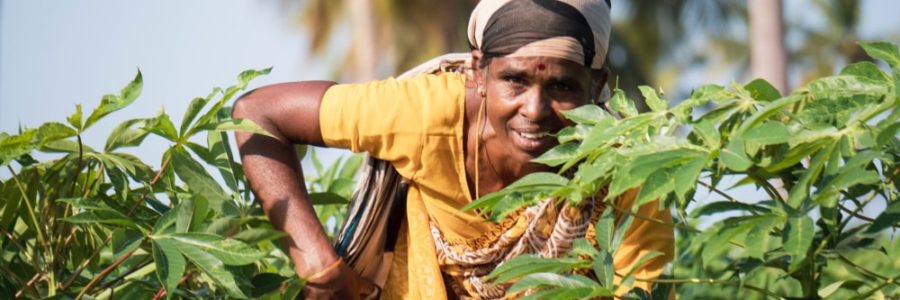This International Women’s Day is a reminder that we must strive for a gender-inclusive economic recovery and not lose the strides made in women’s empowerment in the last few decades on account of the pandemic
Authors: Sona Mitra, Mayank Mishra & Nikhil Iyer
Published: March 05, 2022 in the Hindustan Times
 The Covid-19 pandemic has caused serious economic disruptions. As we celebrate International Women’s Day (IWD), a focus on gender-responsive economic recovery is imperative to counter the disproportionate impact of the pandemic on women, especially in India.
The Covid-19 pandemic has caused serious economic disruptions. As we celebrate International Women’s Day (IWD), a focus on gender-responsive economic recovery is imperative to counter the disproportionate impact of the pandemic on women, especially in India.
The majority of the working women (around 91%) in India are in informal employment, characterised by job insecurity, income volatility, and the absence of social safety nets that prevent and assuage the impact of economic shocks. According to the State of Working India Report 2021, by December 2020, nearly 47% women suffered a permanent job loss, compared to 7% men.
Even though the Periodic Labour Force Survey (PLFS) 2019-20 reported an improvement in female labour force participation rate (FLFPR) for women aged 15 and above – 30%, against 24.5% and 23.3% the previous two years – scholars have disputed these gains. As per the latest official data, FLFPR had dropped to 21.2% in January-March 2021, with the female unemployment rate increasing to 11.8%, against 10.6% a year ago. (PLFS Quarterly 2021).
The informal sector lacks access or awareness of financial services, new modes of payment banks/platforms, and the requirements needed to access credit. For women workers, the hurdles to access are compounded by a lack of access to smart gadgets and the knowledge of using them.
The pandemic has also severely hit the women-owned MSMEs. The disruption caused by the successive lockdowns has led to a loss of revenue and business discontinuity for MSMEs, including women-owned ones. The Indian entrepreneurial ecosystem is heavily skewed – the last published economic census (2013-14) revealed that women-owned enterprises comprised only 13.8% of the total number of enterprises. Most of them are small businesses. Further, women entrepreneurs in India face issues like lack of skills, training, and support, adversely impacting their professional journey. In such a scenario, the pandemic may push women entrepreneurs out of the market, who may find it harder to return.
For a gender-responsive recovery, targeted and accessible government assistance is important to improve women’s access to jobs and earnings. Moreover, it is not only important to arrest the decline in FLFPR but also sustain the gains made in women’s economic empowerment, which clearly leads to positive spill-over effects on family planning, maternal and child health, investment in child’s education, etc. In this context, we outline a few proposals from our paper on a Gender Responsive and Inclusive Economic Recovery in the COVID-19 Context.
Let us begin with urban employment. There has been a discussion around the need for a national urban employment programme to complement the National Rural Employment Guarantee (MGNREGA) since the later part of 2020.
States such as Tamil Nadu have also implemented similar programmes. The scheme could inbuild minimum workdays guaranteed for women, with mandates on urban local bodies to pursue gender-responsive works and IEC campaigns. Such programmes have the potential in facilitating women back into the labour force.
Women are also securing opportunities in the emerging digital-enabled gig economy, particularly in platform work in the service domain. However, this form of employment is still precarious and needs social security coverage. The Code on Social Security was passed in 2020, which includes mention of platform and gig workers; however, its implementation is yet to be felt. Recent reports suggest 10 crore unorganised workers have registered on the e-Shram portal, of which about eight lakh are gig workers. The Government of India may consider providing incentives for platforms to offset the implementation costs that digital platforms will have to incur to provide social security to their workers.
To prepare women for industry 4.0, India has to provide skilling and training in digital and business skills tailored to the future of work. In line with the government’s priority to bring India online, women should be equipped to exploit the internet’s opportunities. Existing gender resource centres under the National Rural Livelihoods Mission (NRLM) and National Urban Livelihoods Mission (NULM), where women access information on schemes, entitlements, etc. could be upgraded to impart these skills. The PMKVY should include provisions for digital training of young girls.
And finally, prompt action is necessitated to redress the disproportionately (six times) high time Indian women spend on care work, which has worsened during the pandemic and has driven many women to withdraw from the labour force. Therefore, it is imperative that infrastructural provisions that reduce time spent on household chores and enable child and elderly care be provided to women at every nook and corner of the country. This would entail ensuring basic infrastructure such as water supply, road connectivity, energy, and clean fuel access. In addition, the universalisation of creches needs to be approached with utmost seriousness.
Further, as India has one of the worst health/education worker to population ratios, these are areas in which women can potentially find opportunities. Researchers at the Azim Premji University estimate that regularising the jobs of anganwadi workers, Accredited Social Health Activists (ASHA), etc. and filling existing vacancies can create up to 3 million jobs.
As the country strives to get back to normal, the government has an important role in ensuring that women do not get left behind. This IWD is a reminder that we must strive for a gender-inclusive economic recovery and not lose the strides made in women’s empowerment in the last few decades on account of the pandemic.
Authors: Sona Mitra is principal economist, IWWAGE, and Mayank Mishra and Nikhil Iyer are public policy manager, and policy analyst at The Quantum Hub Consulting
